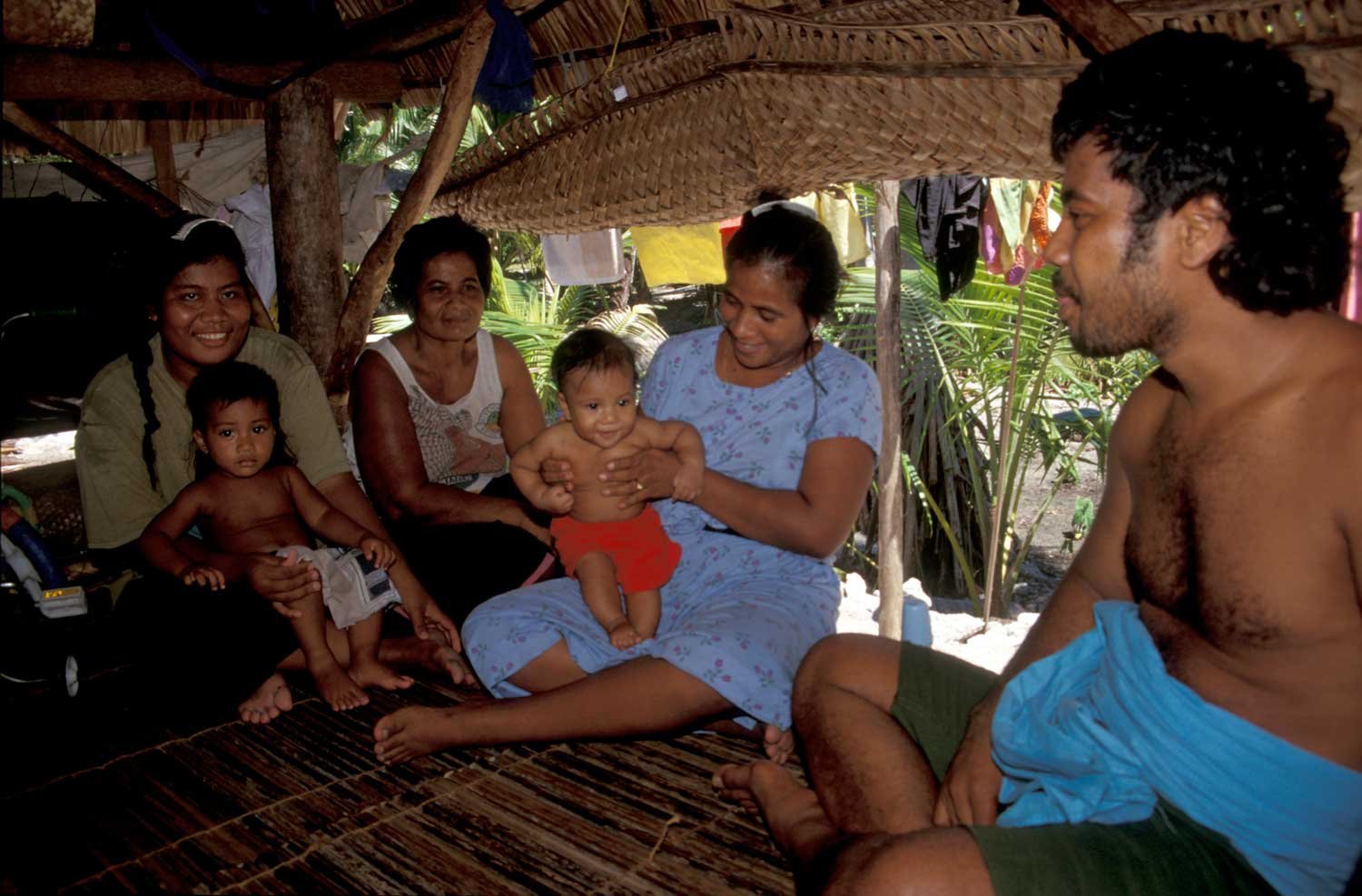
Kiribati
Working in partnership to support early childhood development
The ultimate aim of the Thrive research is to enable young children in Kiribati to realise their full potential.
This will be supported by adapting and implementing assessment tools, gaining new insights into optimal supports for families and communities and crafting sustainable and scalable ECD service delivery models that are locally endorsed.
Thrive research will be deeply rooted in a partnership model, working closely with the national government and essential local stakeholders. Our focus is to offer research and technical assistance tailored to the specific objectives of the 2023 Early Childhood Development national policy.
-
The Thrive projects have been shaped through a collaborative process, incorporating insights and feedback from both national and community levels. We are committed to maintaining this collaborative spirit, continuously engaging with these groups to ensure our contributions are not only relevant but also valuable. Our goal is to deliver outputs that are attuned to local needs and priorities, thereby making a meaningful impact for children in Kiribati.
The Challenges
11%
Unemployment rate
Asian Development Bank, 2020
21.9%
Proportion of population living below the National Poverty Line
Asian Development Bank 2019
4%
Percentage of children under age 5 who have 3 or more children’s books
UNICEF, 2019
ECD in Kiribati
Kiribati, recognized as one of the world’s least developed nations, is home to some of the most marginalized children globally.
These young lives are shaped by the challenges of isolation, poverty, climate change, and the looming threat of displacement. Extensive research, including the national census of children aged 3-5 years (the KeHCI) and various National Reviews, has shed light on the multifaceted hurdles these children face in their journey towards healthy development.
-
They confront high rates of infant and early childhood mortality, prevalent communicable diseases, limited healthcare access, significant instances of undernutrition and stunting, a need for enhanced parent-child interactions for better school readiness, and obstacles in enrolling and attending quality preschools.
These findings have been instrumental in guiding the Kiribati government's priorities, many of which have been integrated into strategic plans. A notable initiative is the establishment of the Early Childhood Policy and Planning Team by the Government of Kiribati, leading to the formulation of the Early Childhood Development (ECD) Policy and Action Plan (ECDPAP). This Plan is a significant stride towards improving and expanding services for children and caregivers. It emphasizes the importance of enhanced parenting support, focusing on the understanding and provision of children's health, educational, and developmental needs. Additionally, it aims at the further development and improvement of services for children. Our goal is to support Kiribati in these endeavors, ensuring that every child has the opportunity to thrive in a supportive and nurturing environment.
How Thrive supports ECD in Kiribati
The Government of Kiribati demonstrates a strong commitment to the Sustainable Development Goals (SDGs), particularly SDG 4.2
SDG 4.2 focuses on ensuring access to quality Early Childhood Development (ECD) services. This commitment is part of a broader effort to enhance early childhood outcomes in the country. However, these efforts face challenges due to the limited capacity and resources in the health and education sectors.
-
In response to these challenges, Thrive Kiribati is dedicated to providing evidence-based research, including the adaptation and implementation of survey tools. These tools are designed to assess children's developmental progress accurately and will play a crucial role in shaping programs that support and enhance current and future Government ECD policies and initiatives.
Thrive Kiribati has set two primary objectives:
To increase local capacity in the use and availability of validated and culturally appropriate ECD measurement tools for children from birth to 6 years. This initiative is aimed at ensuring that developmental assessments are both relevant and effective within the Kiribati context.
To assist the government in implementing training for a novel concept in Kiribati – the Early Child Development-Island Coordinator (ECD-IC) program. This program represents a significant step forward in coordinating and improving ECD services across the islands.
Our Projects
Latest Updates

Our Kiribati Partners
University of South Australia
Ministry of Foreign Affairs and Trade, New Zealand
Understanding The Audience
133,515
The total population of Kiribati in 2023
UNICEF 2023
38
Infant mortality rate-deaths per 1,000 live births
UNICEF 2023
48.2
Under 5 mortality rate- deaths for 1,000 live births
UNICEF 2021
139
GNI per capita US$3,280/ranking 139
World Bank 2022 Atlas Method
An expert team of Researchers, Investigators, Specialists & Consultants
Our team work in collaboration with ministries and national decision-makers, academics, and institutions, and the broader global community of development organisation to improve childhood health and wellbeing.

Our locations
-

Bangladesh
-

Ghana
-

Kiribati
-

Sierra Leone
-

Tanzania












